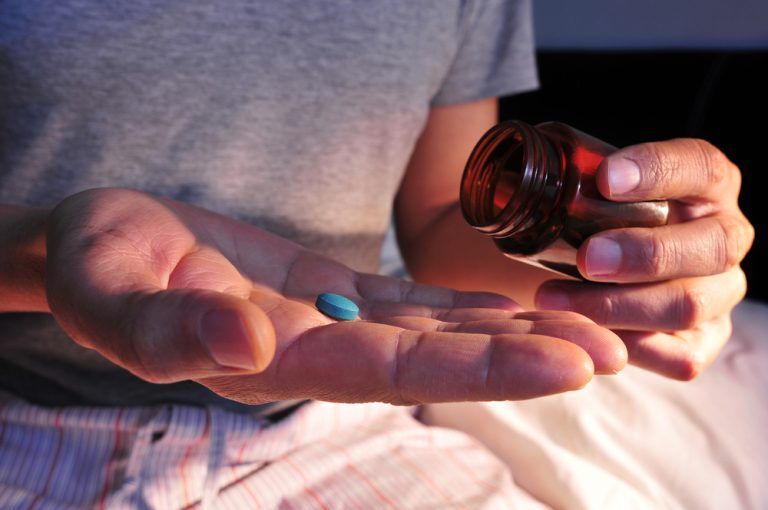Understanding Sex Addiction
Advance Minds Blog
A safe space to explore subjects within the community such as mental health, substance abuse and personal identity.
Our safe space also provides the opportunity for real individuals to express their hardships and success through writing.
Understanding Sex Addiction: Symptoms, Causes, and Pathways to Recovery

Understanding Sex Addiction: Symptoms, Causes, and Pathways to Recovery
Sex addiction, also known as hypersexual disorder or compulsive sexual behavior, involves an intense preoccupation with sexual activities that disrupts daily life, relationships, and emotional well-being. Like other behavioral addictions, it is characterized by an inability to control urges and a cycle of compulsive behavior despite negative consequences. Here’s a guide to understanding sex addiction, its symptoms, causes, and potential treatment options.
1. What is Sex Addiction?
- Definition: Sex addiction is an uncontrollable need to engage in sexual behaviors that interfere with personal responsibilities, relationships, and overall quality of life.
- Diagnostic challenges: Unlike substance addiction, sex addiction doesn’t involve a physical dependency, making it more challenging to define and diagnose.
- Effects on life: The behaviors often lead to emotional distress, guilt, and damaged relationships, with a continuous cycle of desire, engagement, and regret.
2. Common Symptoms of Sex Addiction
- Preoccupation with sex: Persistent thoughts or fantasies about sexual activities dominate the mind and affect daily functioning.
- Loss of control: Repeated, unsuccessful attempts to reduce or control sexual behaviors.
- Risky behaviors: Engaging in unsafe sex, infidelity, or other high-risk activities, sometimes without regard for personal or others' safety.
- Neglect of responsibilities: Work, relationships, and other responsibilities are often ignored or neglected.
- Emotional distress: Feelings of shame, guilt, or self-loathing after engaging in compulsive sexual behavior.
3. Types of Sexual Behaviors Linked to Addiction
- Excessive pornography use: Viewing pornography in a way that interferes with daily life and relationships.
- Frequent casual sex: Having multiple anonymous or casual sexual encounters, sometimes in unsafe or high-risk situations.
- Masturbation compulsion: A strong urge to engage in compulsive masturbation, often for hours, at the cost of other life activities.
- Prostitution or paying for sexual services: Repeatedly engaging in or spending excessive resources on paid sexual activities.
4. Causes and Risk Factors for Sex Addiction
- Psychological factors: Conditions like depression, anxiety, or unresolved trauma can contribute to the development of sex addiction as a coping mechanism.
- Childhood experiences: Early exposure to sexual content, abuse, or neglect can influence sexual behavior patterns later in life.
- Brain chemistry: Similar to other addictive behaviors, sex addiction may be linked to dopamine and serotonin imbalances, which create a cycle of pleasure and compulsion.
- Personality traits: Individuals with high impulsivity, risk-taking behavior, or poor impulse control may be more susceptible to developing sex addiction.
5. Impact of Sex Addiction on Relationships and Personal Life
- Strained relationships: Trust, intimacy, and communication often suffer in close relationships, leading to conflict, infidelity, or separation.
- Isolation and loneliness: Shame and secrecy can lead to social withdrawal, preventing meaningful connections.
- Financial issues: Compulsive sexual behavior can lead to financial strain, especially if money is spent on porn, escorts, or related activities.
- Mental health effects: Depression, anxiety, and low self-esteem often accompany sex addiction, further impacting quality of life.
6. Diagnosis of Sex Addiction
- Assessment by a professional: A mental health professional may assess patterns of behavior, impacts on daily life, and psychological factors.
- Diagnostic criteria: Although not included in the DSM-5 as a formal disorder, many clinicians recognize patterns similar to other behavioral addictions and use criteria from organizations such as the International Classification of Diseases (ICD-11).
7. Treatment Options for Sex Addiction
- Cognitive Behavioral Therapy (CBT): CBT helps individuals identify and challenge the thought patterns driving compulsive behaviors and develop healthier coping strategies.
- Medication: In some cases, medications may be prescribed to treat underlying mental health issues like depression or anxiety or to reduce sexual compulsions.
- 12-Step Programs and Support Groups: Groups such as Sex Addicts Anonymous (SAA) or Sex and Love Addicts Anonymous (SLAA) offer peer support, accountability, and recovery strategies.
- Couples therapy: For those in relationships, couples therapy can help repair trust, establish boundaries, and improve communication.
- Mindfulness and stress management: Techniques such as meditation, mindfulness, and relaxation can reduce anxiety and stress, helping reduce urges to engage in compulsive behavior.
8. Self-Help Strategies for Managing Sex Addiction
- Set personal boundaries: Avoid situations or triggers that lead to compulsive behaviors, such as blocking certain websites or deleting apps.
- Practice self-awareness: Journaling and self-reflection can help track triggers and understand the motivations behind compulsive behavior.
- Develop healthy coping mechanisms: Physical exercise, hobbies, and spending time with supportive friends can help distract from urges.
- Mindful decision-making: Practicing mindfulness can help individuals make more conscious decisions instead of acting on impulsive urges.
9. Challenges and Misconceptions about Sex Addiction
- It’s not simply a lack of willpower: Sex addiction is a complex behavioral addiction involving underlying psychological and neurological factors, not just a moral failing.
- Not everyone with high sexual interest is addicted: High libido alone doesn’t constitute addiction. It becomes a problem when sexual behavior negatively affects one’s life and relationships.
- It’s not an excuse for harmful behavior: While addiction affects self-control, treatment is essential to take responsibility and learn healthy behavior patterns.
10. Support for Families and Partners of Individuals with Sex Addiction
- Education and understanding: Learning about sex addiction can help partners and family members respond with compassion instead of anger.
- Avoid enabling: Avoid supporting or excusing the addictive behavior, and encourage accountability and positive change.
- Encourage professional help: Gently support the individual in seeking therapy or joining a support group.
- Self-care for partners: It’s crucial for partners to seek support for themselves, whether through therapy, support groups, or trusted friends, to maintain their own mental well-being.
11. Path to Recovery and Hope for Sex Addiction
- Progress is possible: With consistent treatment and support, individuals can manage urges, build healthier relationships, and regain control.
- Building trust: Recovery can restore broken trust and lead to stronger, more honest connections with loved ones.
- Continued support: Regular therapy sessions, group meetings, and self-care are essential to long-term recovery and stability.
Final Thoughts:
Sex addiction can be a challenging and isolating experience, but with understanding, treatment, and the right support, individuals can regain control over their lives and build healthier relationships. Compassion and patience, combined with evidence-based treatment and personal accountability, are essential steps on the path to recovery.
















